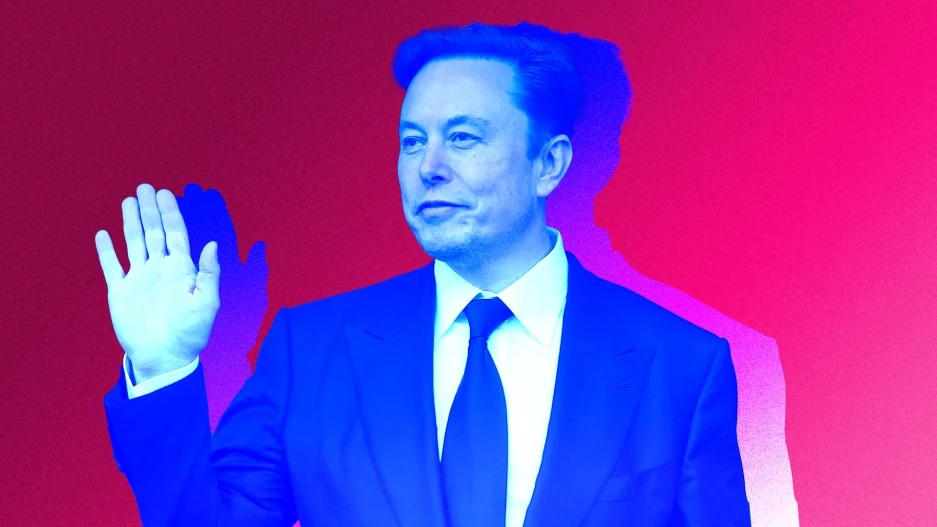- | 9:00 am
Twitter’s transparency reporting has tanked under Elon Musk
Under its billionaire owner, the company seems to have quietly abandoned an accountability measure it once championed.

Twitter has quietly gone silent about how it enforces its rules and responds to government demands about its users.
The company has not posted a transparency report since Elon Musk’s purchase of it in October, ending a 10-year streak of keeping the world apprised of governmental user information requests.
Had Twitter stuck to its usual twice-yearly cadence, we would have seen a new transparency report posted at the end of January documenting the first half of 2022—as it did January 25, 2022, when it published a report covering the first half of 2021.
Instead, the transparency timeline ends with data, published July 28, 2022, for July through December of 2021. That report revealed that Twitter fielded 11,460 requests for information from 67 countries and complied with 40.2% of them; it further documents that Twitter enforced its own rules against 4,257,617 accounts, suspending 1,269,477 of them and removed 5,103,156 items.
Twitter’s press office, which from multiple accounts does not exist anymore, did not respond to an email sent Friday afternoon. A tweet sent Friday afternoon to Musk also went unanswered even as he kept busy answering others, including a tweet about camouflaging one’s shoes in a public bathroom stall and another suggesting that the U.S. blew up Russia’s Nord Stream pipelines under the Baltic Sea.
Musk also seems to have stayed silent about The Washington Post’s February 3 report that earlier noted the apparent end of its transparency reporting.
He has, however, regularly declared his commitment to transparency (January 13: “Transparency builds trust.”) and his opposition to government interference (a February 6 tweet denouncing “U.S. government censorship & media manipulation”).
Online civil-rights groups have long urged companies to follow the example Twitter set early on in providing transparency reports—its initial such posting, published July 2, 2012, came only two years after Google released the first transparency report and happened well before the likes of Facebook adopted the habit.
“We entrust our most sensitive, private, and important information to tech companies—they’re privy to the conversations, photos, social connections, and location data of almost everyone online,” says Electronic Frontier Foundation (EFF) spokesman Josh Richman. “The choices these companies make affect the privacy of every one of their users, so transparency reports are a vital way of holding companies accountable when governments try to seize our information or censor our speech.”
In 2013, the EFF gave Twitter a score of six out of six stars in its “Who Has Your Back?” ranking of tech companies. No other social media firm came close that year.
“Twitter had some of the best transparency reporting of any platform,” says Jan Rydzak, company and investor engagement manager at Ranking Digital Rights, a program hosted by the Washington, D.C., think tank New America that grades tech and telecom firms on the human-rights goals they set.
“Transparency reporting has been an important tool for companies to demonstrate to their users how they protect their privacy and how they push back against improper government requests for their data,” adds Isedua Oribhabor, business and human rights lead at Access Now, whose 2021 Transparency Reporting Index commended Twitter for nine straight years of reporting.
If transparency reporting really has become yet another form of collateral damage from Musk’s chaotic control—along with many of Twitter’s old content-moderation rules, much of its former leadership and staff, the code frameworks that let other apps and researchers build on Twitter’s platform, and even day-by-day reliability—the EFF’s Richman says nobody should be happy.
“The reports shed crucial light on whether or not tech companies have users’ backs, or if they’re rolling over and compromising users’ data,” he says. “Any company that walks away from making such reports is taking a big step backward.”
Musk’s own attempts at transparency have involved trash-talking the previous regime and inviting handpicked writers to post “#TwitterFiles” dumps of internal debates about content moderation. Ranking Digital Rights’ Rydzak isn’t impressed with his performance.
“Elon Musk seems to have replaced this with morsels of heavily processed information meant to drive engagement rather than protect users,” he says. “Musk strip-mined the core structures responsible for protecting human rights at Twitter and concentrated all decision-making power in himself, severing ties with the human rights community entirely.”
He worries that other tech firms will see Twitter tossing transparency aside as an example to follow.
“There is a big concern in the human rights community that Twitter’s silence will reverse the momentum of progress and trigger a race to the bottom in the tech industry,” he says.
At least one lesser form of transparency reporting does seem to be continuing at Twitter. The Lumen Database, a project at Harvard University’s Berkman Klein Center for Internet and Society that archives copyright and other takedown requests, posted February 15 that it was still receiving copies of those notices from Twitter.
Lumen’s post appeared on Mastodon, the decentralized social platform that Lumen has begun using in place of Twitter.







































